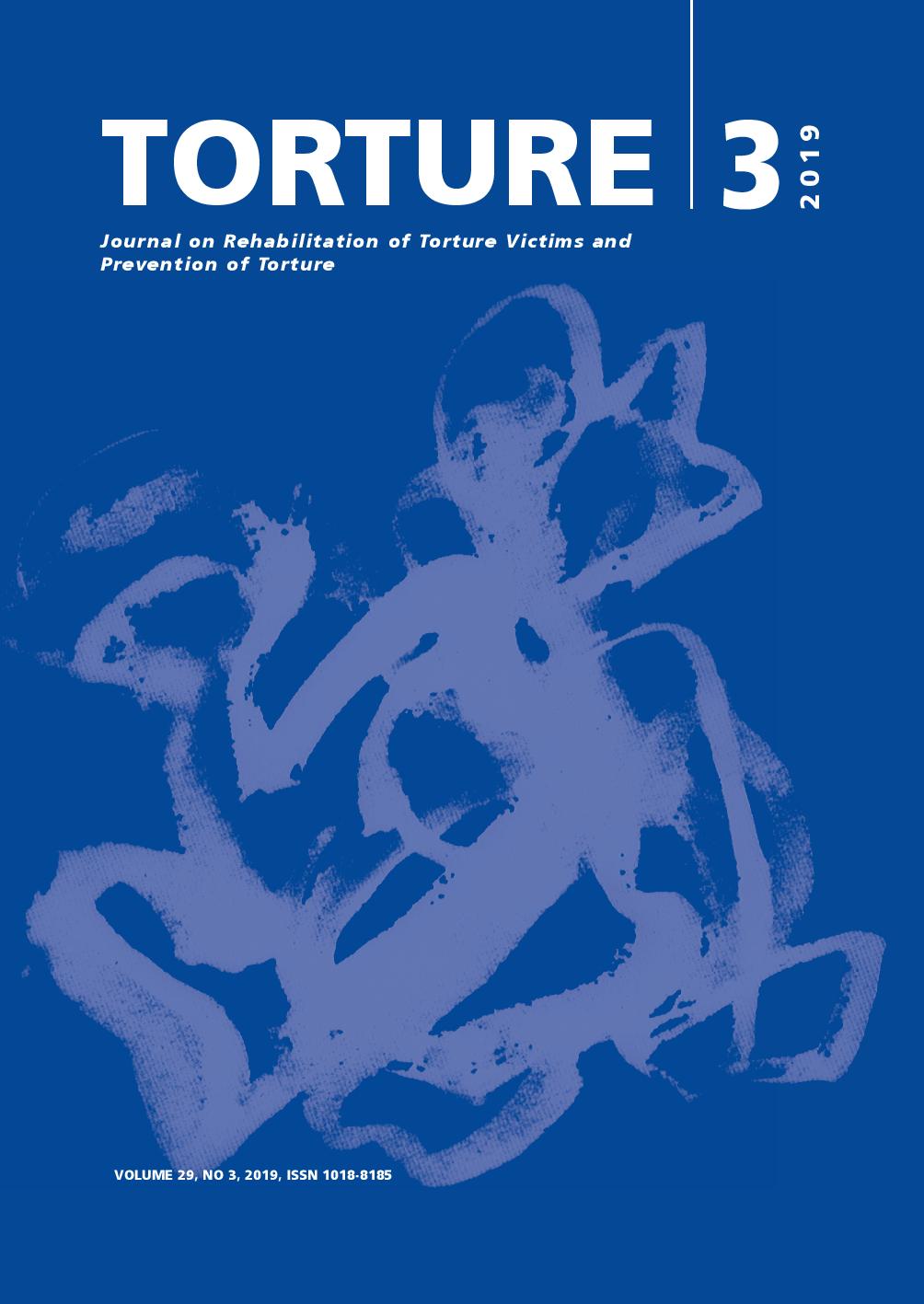Organizational development with torture rehabilitation programs
An applied perspective
DOI:
https://doi.org/10.7146/torture.v29i3.112347Palabras clave:
Organizational Development, Torture Rehabilitation, Capacity BuildingResumen
Torture rehabilitation has emerged as a field over the past several decades and much of the literature has focused on clinical interventions, related evaluation, and documentation of torture. Less discussed are organizational development initiatives that seek to strengthen organizational effectiveness in order to improve mental health outcomes for torture survivors. Based on applied experience in organizational development with torture rehabilitation programs in post-conflict contexts, the authors explore key organizational development needs in the field of torture rehabilitation, areas of future consideration for international agency donors, and additional future considerations for torture rehabilitation programs themselves. A case is made fo organizational development efforts that prioritize time for strategic thinking that includes participation from stakeholders across the organization’s functions; staff care policies that prevent secondary trauma and promote wellbeing and retention; clarity surrounding organizational structure and roles; financial management systems that position the organization for growth and fund diversification strategies beyond the project-based international agency funding model. The work requires longterm commitment in terms of technical and subgrant assistance, including an ongoing process of assessing and adjusting approaches. The case examples included are representative of certain key challenges that may be addressed to some degree within the parameters of a similar project. While the work of torture rehabilitation is urgent by nature, the authors emphasize the need for practical approaches for the important (but not urgent) work of organizational development.
Citas
Andersson, F.O. Faulk, L. & Stewart, A.J. (2016). Toward More Targeted Capacity Building: Diagnosing Capacity Needs Across Organizational Life Stages. Voluntas: International Journal of Voluntary and Nonprofit Organizations, 27, 2860–2888. doi: 10.1007/s11266-015-9634-7
Bowden, R., Craven, A. (2001). The art in the art and science of organizational development. Organization Development Journal, 19(3), 15-25.
Cheung-Judge M.-Y. (2018). Making Value-Based Decisions and Dealing with Value Dilemma and Conflict While Working on OD in a Global Context. In Jamieson et al (Eds.), Enacting Values-Based Change (pp. 191-237). Oxford, UK: Quality & Equality Ltd.
Covey, S., Merrill, A., & Merrill, R. (1994). First things first: to live, to love, to learn, to leave a legacy. New York: Simon & Schuster.
Dobrai, K., & Farkas, F. (2016). Nonprofit Organizations from the Perspective of Organizational Development and Their Influence on Professionalization. Naše gospodarstvo/Our Economy, 62, 2, 25–32. doi: 10.1515/ngoe-2016-0009 Eisenhower’s Important/Urgent Principles. (n.d.). Retrieved from https://www.mindtools.com/pages/ article/newHTE_91.htm
Hailey, J. & James, R. (2004). “Trees Die From the Top”: International Perspectives on NGO Leadership Development Source: Voluntas: International Journal of Voluntary and Nonprofit Organizational, 15(4), 343-353.
Hofstede Insights: Compare countries. Retrieved from https://www.hofstede-insights.com/product/comparecountries/
International Rehabilitation Council for Torture Victims. What we do: Rehabilitation of Torture Victims. Retrieved from https://irct.org/index.php/what-we-do/rehabilitation-of-torture-victims
McEwan, B. (2015). Organizational Development: Begin with a Healthy Infrastructure. Organization Development Journal, 33(3), 23-38.
National Council for Non-Profits. What is Capacity Building? Retrieved from https://www.councilofnonprofits.org/toolsresources/whatcapacity-building
Schifo, R. (2004). OD in Ten Words or Less: Adding Lightness to the Definitions of Organizational Development. Organization Development Journal, 22(3), 74-85.
United Nations General Assembly. (1984). Convention against torture and other cruel, inhuman or degrading treatment or Punishment. United Nations, Treaty Series. Retrieved from www.ohchr.org/en/professionalinterest/pages/cat.aspx United Nations General Assembly (2015).
Transforming our world : the 2030 Agenda for Sustainable Development, 21 October 2015, A/RES/70/1, available at https://www.refworld.org/docid/57b6e3e44.html
Descargas
Publicado
Cómo citar
Número
Sección
Licencia
We accept that some authors (e.g. government employees in some countries) are unable to transfer copyright. The Creative Commons Licence Attribution-NonCommercial-NoDerivatives 4.0 International (CC BY-NC-ND 4.0) covers both the Torture Journal and the IRCT web site. The publisher will not put any limitation on the personal freedom of the author to use material contained in the paper in other works which may be published, provided that acknowledgement is made to the original place of publication.


